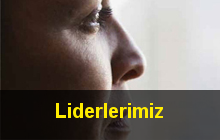
An assessment on the right to property within the scope of tax controversy in the opinion from European Court of Human Rights
Atty. Ege Ertutar
Introduction
The state collects money from individuals under the name of "tax" by using its taxation authority and may interfere with some basic rights and freedoms of taxpayers occasionally while performing the duty of collecting taxes. The subject of this article is the criteria that European Court of Human Rights (ECHR) takes into consideration in evaluating whether this interference is justified in applications made with the claim that the taxpayer's property right has been violated.
1. Interference with the right to property through taxation
Taxation power gives the state a wide range of legal and actual powers based on its sovereignty over its country. The state needs to consider basic principles such as “tax equality”, “legality”, “financial power”, “proportionality” in terms of exercising tax authority and interfering with the right to property. It should not be forgotten that an unlawful and unlimited intervention will harm the fundamental rights and freedoms of individuals. As a matter of fact, this issue is explained in the Constitutional Court's decision dated 07.11.1989 no.1989 / 6, and 1989 / 42 with the following statements;
“The excessive, unmeasured limitation that eliminates the right is contrary to the Constitution and is invalid. In order to meet the public needs, it is clear that under certain circumstances, "tax" which means the transfer of some of the assets of individuals and organizations to the state and making them public, should be collected within the constitutional limits.
2. Assessment of the right to property in terms of tax disputes within the scope of ECHR decisions
There are three main criteria examined by ECHR in the applications made in terms of Article 1 of Protocol No. 1 to the Convention:
a. The legal basis of the intervention
Interventions must have a legal basis and must be based on law in order to prevent arbitrary interventions in exercising the taxation power of the state. In the Spacek s.r.o / Czech Republic Decision, which includes deterministic evaluations regarding the “lawfulness” criterion, ECHR concluded that there was no violation under Article 1 of Protocol No.1 to European Convention on Human Rights (“Convention”) considering that the General Communique, not published in the Official Gazette and which was a lower-level regulation was predictable and accessible for the applicant company.
b. Purpose of the intervention in the public interest
Taxation transactions must have a legitimate aim in line with the public interest. In the context of S.A. In the Dangeville France case, ECHR assessment indicating that there is no legitimate purpose of the intervention by the domestic legal authorities within general interest differs from many other decisions that the State has a legitimate aim in interfering with the right to property.
c. Moderation of the intervention
Even if an interference with the right to property through taxation is deemed to have a purpose and legal basis in the public interest, Article 1 of Protocol No. 1 to the Convention will be violated if the concerning intervention is not measured. In Hentrich case, although ECHR acknowledges that preventing tax evasion is a legitimate aim within the public interest, in its assessment of whether the intervention is necessary or not; it found the pre-emption right which is not found in the member states of the Convention unmeasured within the scope of Article 1 of Protocol No.1 attached to IHAS as a type of tax security measure that many different and appropriate methods may be used instead.
In Eko-Elda Avee Greece case where ECHR evaluated proportionality, following that the refund of the extra tax paid by the applicant had occurred five years after the request is detected, ECHR concluded that the administration's refusal to pay interest for such a long time without compensating the applicant's damage also disrupted the fair balance that had to be found between the individual benefit and the public interest. Also in Buffalo/İtaly case, ECHR stated that it took five to ten years for the tax refund to take place, that the delay in the tax refund payments for more than the time that could be deemed reasonable creates an uncertain situation for the applicant company, that Article 1 of Protocol no.1 to the Convention was violated with the assessment that the interference with the property was disproportionate.
Conclusion
ECHR reiterates in many of its decisions that states have a wide margin of appreciation regarding the interference and limitations of individuals towards their property rights throughout the taxation process, however emphasizes that this authority is not an unlimited power.
Explanations in this article reflect the writer's personal view on the matter. EY and/or Kuzey YMM ve Bağımsız Denetim A.Ş. disclaim any responsibility in respect of the information and explanations in the article. Please be advised to first receive professional assistance from the related experts before initiating an application regarding a specific matter, since the legislation is changed frequently and is open to different interpretations.










 Başa Dön
Başa Dön